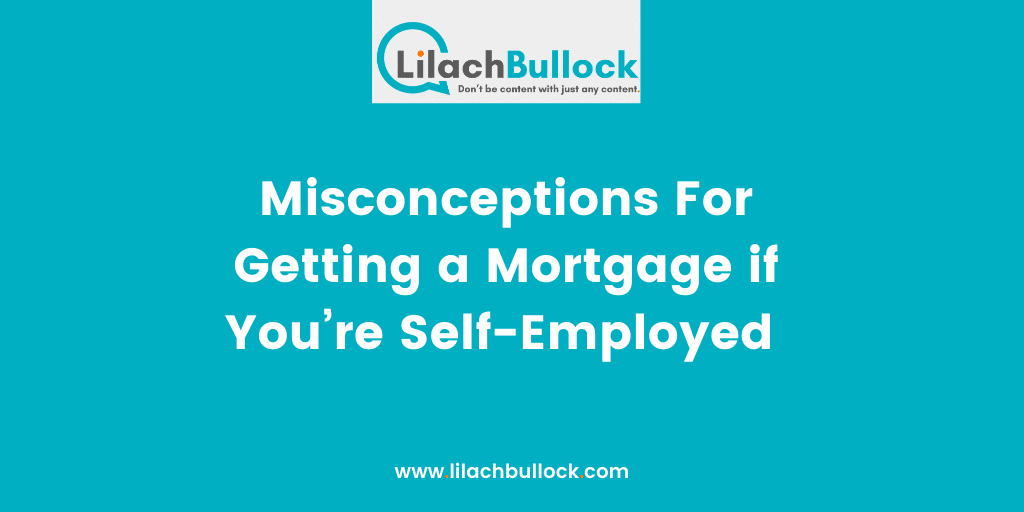Follow Lilach

Misconceptions For Getting a Mortgage if You’re Self-Employed
Obtaining a mortgage when you are self-employed can be harder than someone in an employed position. You may be earning a decent wage but proving that you earn a consistent wage may make it more difficult to get a mortgage. However, it is possible to get a mortgage when you are self-employed, as lenders are usually just concerned that you are able to repay the amount plus if you have a proven track record of good money management, this will showcase your ability to pay back debt. Being able to actually pay back the mortgage is one of the things we are most concerned about when we decide to invest. The regular mortgage rates aren’t low, and having a stable income is a must. This will ensure that having and paying off a mortgage comes with as little stress as possible. Lenders also typically look at how your income affects your debt ratio and whether you’d be able to afford mortgage repayments. If this ratio is above approximately 43 percent, then it will prove harder to obtain one. There are some common misconceptions for getting a mortgage for self-employed people, and this post discusses some of them to give you an idea of how getting a mortgage could be easier than you first thought.
Misconceptions For Getting a Mortgage if You’re Self-Employed
Higher interest rates
One of the most typical misconceptions is that self-employed people are only able to obtain mortgages with higher rates. If you are earning well and have a good history of money management, the interest rates should reflect that of someone who has a typically employed job. You can find some of the best mortgage loans from traditional lenders for both employed and self-employed people, and this should not present a barrier to better rates if you have a good credit score.
You’ll need to get your mortgage co-signed
Although there may be cases where having your mortgage co-signed by someone with a W-2 are ideal, it is not always necessary to have one. If you are able to show you have a good regular income plus an excellent history of money management, you are more likely to be accepted for a mortgage.
Proving all income
If you have two jobs, one where you have a W-2 and another where you are self-employed, this doesn’t mean you have to prove all of your income to apply for a mortgage. If your salaried earnings are enough to secure the interest rates and borrowing you want, this will be enough to prove your ability to pay it back. The same can be said for people who are trying to get a mortgage with a co-borrower. If you are self-employed and they are employed, if their earnings are sufficient, you may not need to prove your self-employment earnings in the application.
What lenders look out for
As with all mortgage, there are several things that lenders are looking out for if you are self-employed. This includes:
- Stable income – You should be able to prove that your income is stable and have an overall progression in earnings over a period of time.
- Consistent work stream – Proving that you have regular and consistent work from clients is important.
- Previous money management – You should be able to display good money and debt management for future borrowing.
- Large down payment – If you have a significant down payment, lenders may look at this favorably.
Mortgages aren’t just reserved for people that are employed. With a good credit score and consistent earnings, self-employed people should be able to enjoy the same freedoms as those that hold a W-2.

Follow Lilach















